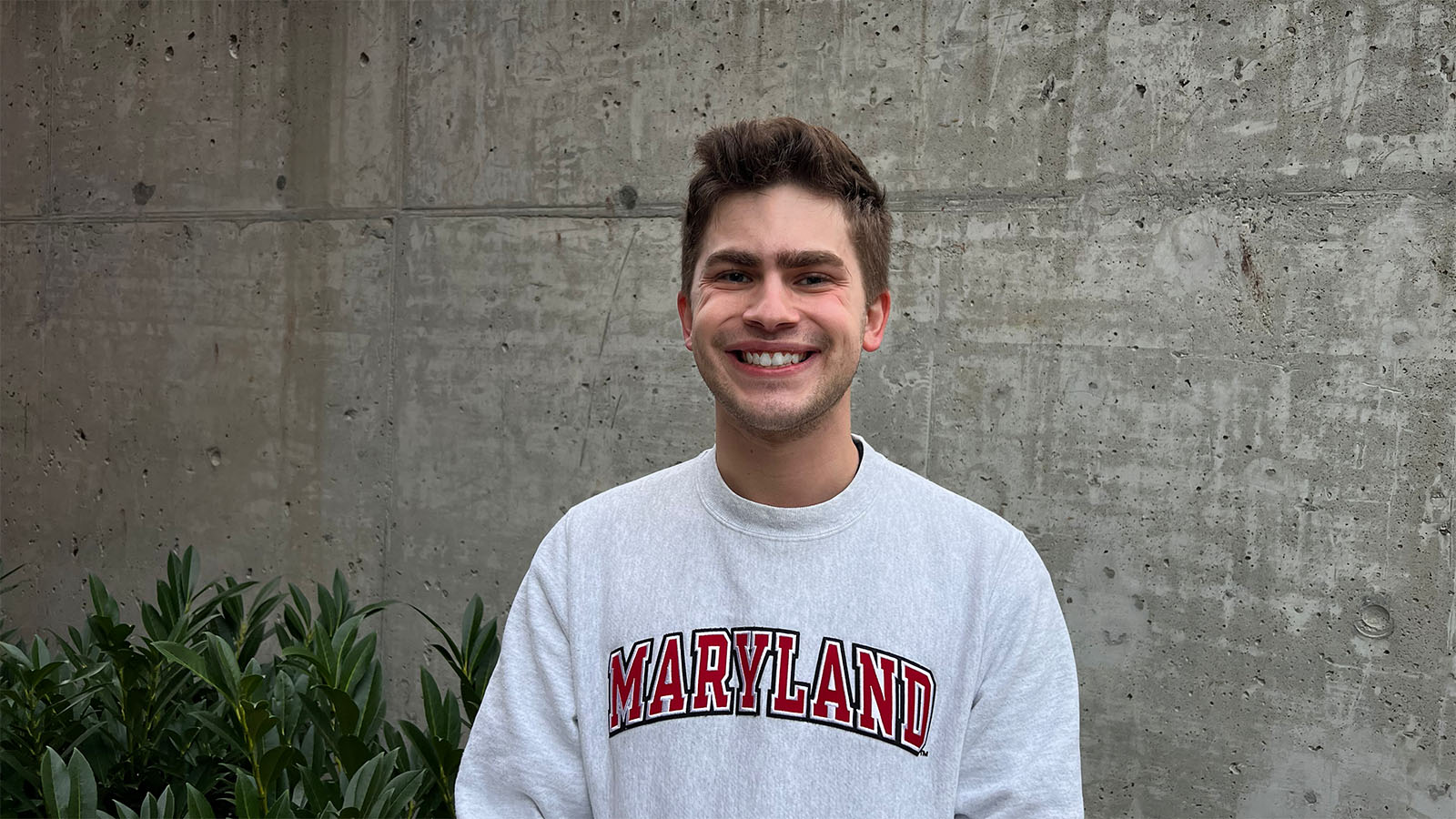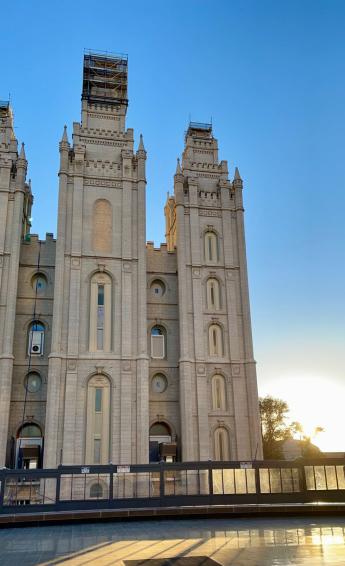A Path to Research
May 17, 2022

McNair scholar and triple major Jared Bennett ’22 is following his curiosities about Mormonism to graduate school.
By Jessica Weiss ’05
Senior Jared Bennett ’22 has always been interested in exploring “why people believe what they believe.”
Bennett, who is Jewish but attended a Catholic high school in a very diverse area of New Jersey, grew up reading and talking about religion, and wondering why devotion often conjures negative opinions. He knew he wanted to study these questions somehow, whether in college or on his own.
In 2020, he was a double major in English and agricultural and resource economics when he learned the Joseph and Rebecca Meyerhoff Center for Jewish Studies was soon to launch the university’s first ever religious studies major. Bennett jumped at the opportunity, adding a third major in religions and cultures of the ancient middle East—or RAME.
“The RAME major was the missing puzzle for me academically,” said Bennett, who will graduate this week. He will attend Utah State University in the fall to work on a Masters of Arts in history focusing on Mormon studies. He then plans to apply for a Ph.D. program, and eventually to teach, research and write.
The 30-credit RAME major allows students to take courses in the religion, literature, thought and art of the ancient Middle East from the time of the Egyptian kingdoms through the founding of Islam. RAME is designed to provide students with opportunities to gain cultural competence and explore religion through multiple disciplines.
“You’re looking at religion from a sociological perspective, an anthropological perspective, through literature,” Bennett said. “I find it fascinating and it gives you skills you can use in other classes that aren’t specifically about religion.”
The major also provided Bennett the impetus to explore his interests in religion more broadly, including in contemporary contexts. Last year, he was selected to participate in the UMD Ronald E. McNair Post-Baccalaureate Achievement Program, also known as the McNair Scholars Program. The program involves faculty-guided research and mentoring and results in a research paper that eventually gets presented at a conference and can serve as a writing sample for graduate school applications. Bennett’s faculty mentor was Director of the Joseph and Rebecca Meyerhoff Program and Center for Jewish Studies Maxine Grossman, who is an associate professor of Jewish studies and religious studies and leads the RAME program.
Bennett decided to focus his McNair experience on a topic of religious studies he’d long been interested in: Mormonism. He wanted to understand firsthand why a religion so shrouded in secrecy often draws distrust, criticism and even ridicule in the public sphere.
In his final eight-page paper, Bennett demystified rituals practiced in Mormon temples by describing how they are handed down through oral tradition. To do so, he applied a theory of cultural memory developed by Jan Assmann, a German Egyptologist, who explored how memory is shared by a group of people and passed from one generation to the next, such as through texts, oral traditions or other symbols. Bennett applied this theory to temple rituals like baptism, ordination and marriage sealing, which are little known and often misunderstood outside of the church.
His research interests also took him twice to Utah, home to the largest Mormon population in the United States, where he toured historical structures and spoke to missionaries.
“The secrecy of the Mormon church is often taboo in American culture, and I was able to describe an aspect of it in a way that I think people can relate to and understand,” Bennett said. “We all have cultural memory—whether you’re Jewish, Christian, American, third generation Italian.”
Grossman said Bennett’s final paper confirmed he is wholly ready for graduate work: “He’s done an amazing job of identifying a field of study that is ready for new advances and really showing the way forward for that scholarly work,” she said.
Outside of class, Bennett has been involved in a number of clubs and activities, including the International English Honors Society, Model Congress and the Student Advisory Committee for Diversity and Inclusion. In the College of Arts and Humanities, he was a digital and web intern and an ARHU Ambassador, a role that allowed him to share his experiences in ARHU and at UMD with prospective and current students.
He said he has enjoyed helping incoming students by reassuring them that any confusion or uncertainty they may have about their major or course of study will likely “turn out fine” as long as they explore their interests and take advantage of the many opportunities available at the university. His experience as an undergraduate pursuing a variety of disciplines and following his curiosities paid off, he said.
“My time at Maryland prepared me to do research in a way I couldn’t have expected, and that gave me the confidence to pursue grad school,” Bennett said.
ARHU students can benefit from “Be Worldwise. Get Worldready.,” a career initiative that blends new and reimagined course offerings, integrated academic and career advising and access to internships, alumni networking and other opportunities across the region. Learn more.


